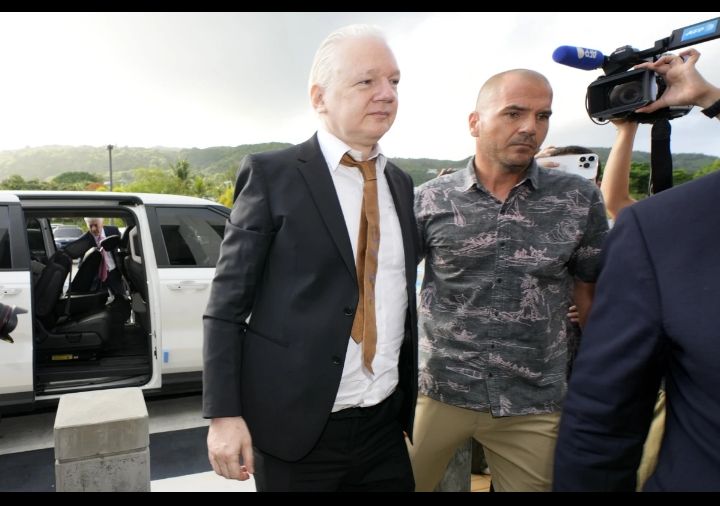Julian Assange, the WikiLeaks founder, has pleaded guilty to violating the Espionage Act in the U.S. territory of Saipan. Despite his plea, Assange maintained his stance as a journalist protected by the First Amendment.
“Working as a journalist, I encouraged my source to provide information that was said to be classified in order to publish that information. I believe the First Amendment protected that,” Assange stated. He acknowledged the violation of an espionage statute but stated the difficulty of contesting the case.
During the court proceedings, when asked if he was satisfied with the outcome, Assange responded, “It might depend on the outcome.” His lawyer added humorously, “No pressure, your honour.”
Assange’s plea follows the 2010 publication of classified military and diplomatic documents by WikiLeaks. His court appearance in Saipan precedes his expected extradition to Australia. Previously, Assange sought asylum in the Ecuadorian Embassy in London, where he stayed for nearly seven years before being detained by British authorities in 2019.
The case has involved multiple countries, including the United States, Britain, Sweden, Ecuador, and Australia. Assange faced sexual assault charges from Swedish authorities in 2010, which he denied. He sought asylum in London to avoid extradition and was later detained after being ousted from the embassy.
Following his court hearing in Saipan, Assange is expected to be extradited to his native Australia. He is crowdfunding the costs for his repatriation, with a target of 520,000 British pounds.


